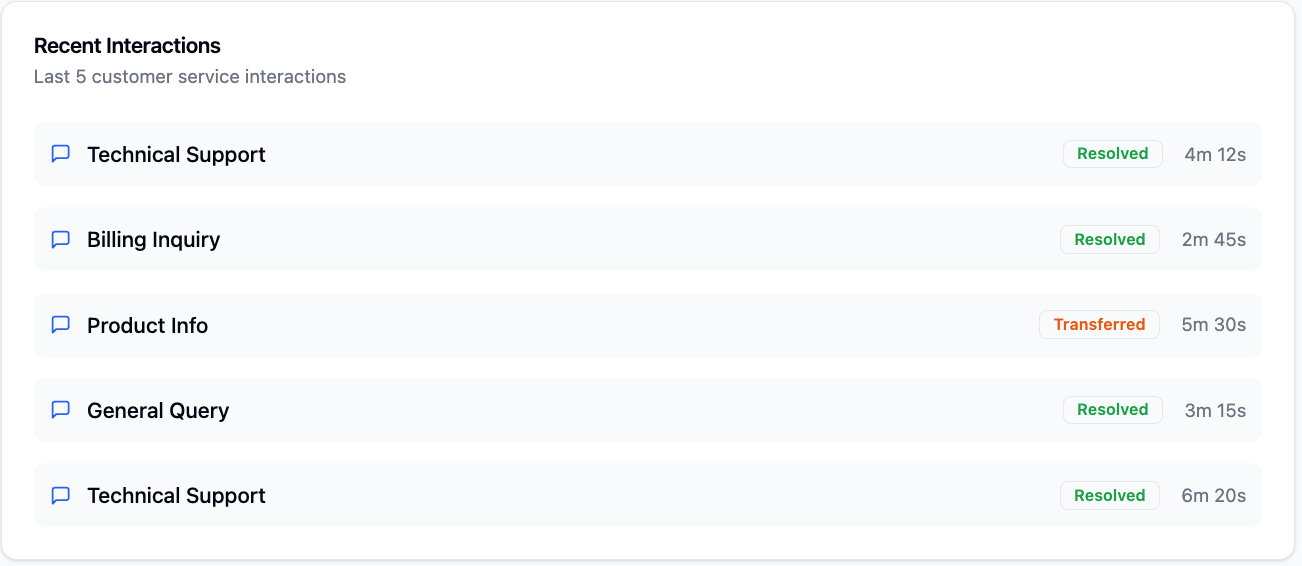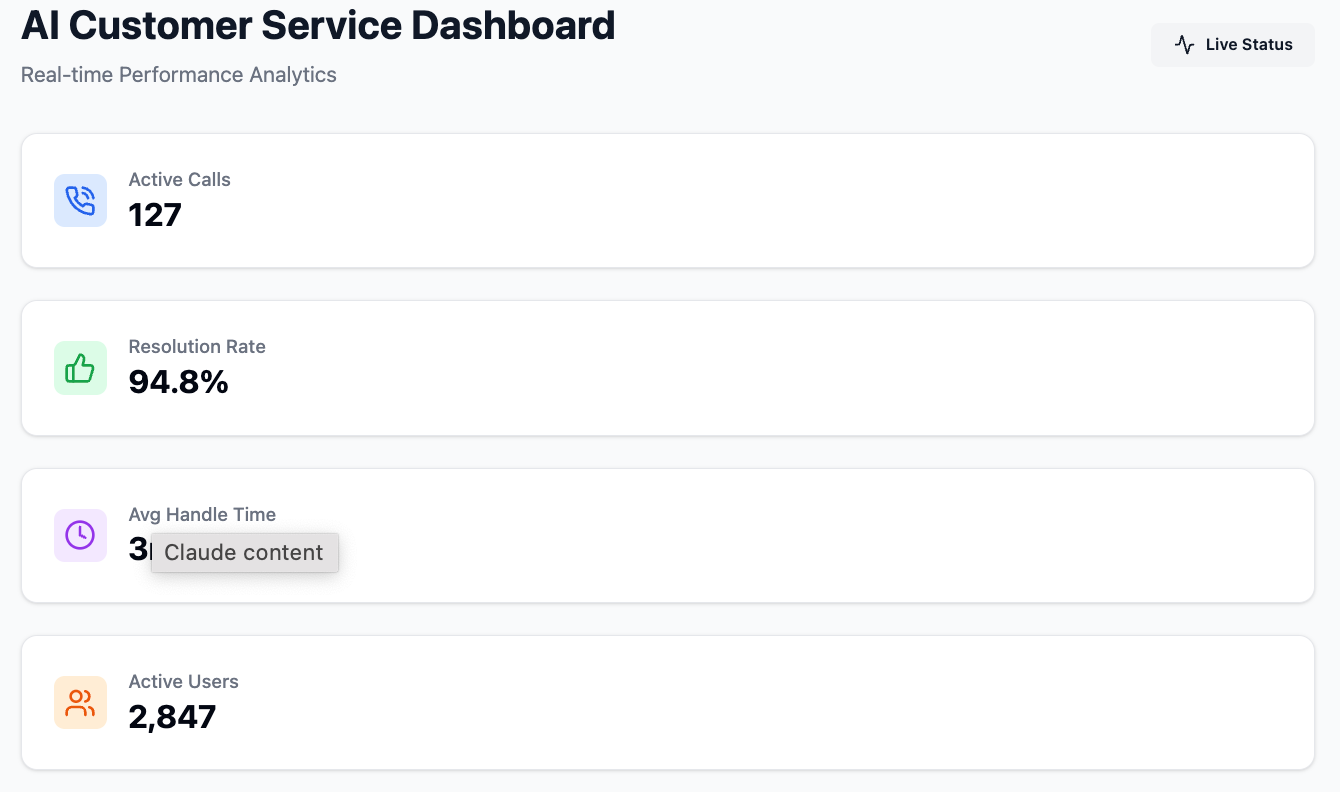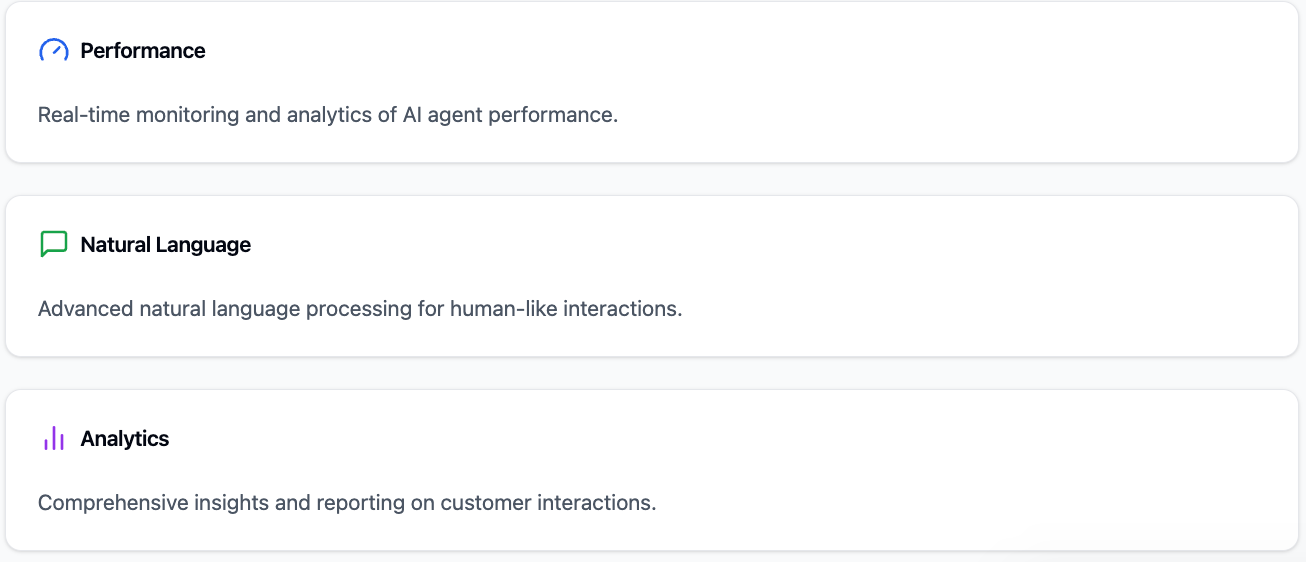How to Build an AI Customer Service Representative with Retell AI
How to Build an AI Customer Service Rep with Retell AI.
In today’s world business is moving fast, customer service and operational efficiency is more important than ever. An AI customer service rep powered by Retell AI is the answer to this challenge, 24/7 support with the human touch customers love. This guide will show you how to build an AI customer service rep for your business, focusing on the process of agent creation.
Introduction to AI Customer Service
Artificial intelligence (AI) has revolutionized the way businesses interact with their customers. AI-powered customer service is becoming increasingly popular, and for good reason. AI customer service reps can handle a high volume of inquiries, provide 24/7 support, and offer personalized experiences to customers. These AI agents, especially voice AI agents, can manage both inbound and outbound calls, ensuring that customer queries are addressed promptly and efficiently. In this section, we will explore the benefits of AI customer service and how it can be implemented using voice agents.

Prerequisites for Building an AI Customer Service Rep
Before building an AI customer service rep, there are several prerequisites to consider. First, you need to have a clear understanding of your business goals and objectives. What kind of customer service do you want to provide? What are the common pain points of your customers? Second, you need to have a robust infrastructure in place, including a reliable phone system, a customer relationship management (CRM) system, and a data analytics platform. Finally, you need to have a team of experts who can design, develop, and deploy the AI customer service rep. This team should be proficient in conversation design, system integration, and continuous improvement to ensure the AI agent meets your business needs.

What is Modern AI Customer Service
Customer service has changed dramatically with the introduction of AI. Modern AI reps are far more advanced than traditional chatbots, natural conversations, context awareness and can handle complex conversations. When powered by Retell AI they can understand nuance, maintain context and provide personalized responses that truly add value to the customer.
Build Your Rep: Step by Step Guide
1. Planning
-
Define customer service goals
-
Identify key conversation scenarios
-
Map out response flows
-
Plan integrations
-
Set KPIs
Technical Setup with Retell AI Voice AI Agent
Initial Setup
-
Create Retell AI account and project
-
Configure basic settings
-
Set up development environment
-
Retrieve and utilize the API key: Access the API keys from the OpenAI and Retell AI dashboards. Use these keys to configure your environment variables for successful integration.
-
Create API connections
-
Configure security
Conversation Design
Create natural conversations:
-
Design conversation templates
-
Build decision trees
-
Context awareness
-
Personalization rules
-
Fallback responses

System Integration
Connect to existing systems:
-
CRM integration
-
Database connections
-
Knowledge base access
-
Telephony setup
-
Analytics
Understanding the integration process is crucial, as it requires familiarity with JavaScript, React, and tools like HubSpot CMS to successfully implement functionalities supported by third-party services like RetellAI.
Creating a Voice Agent for Customer Service
Creating a voice agent for customer service involves several steps. First, you need to define the scope of the project, including the type of customer service you want to provide and the channels you want to use (e.g., phone, email, chat). Second, you need to design the conversation flow, including the prompts, responses, and decision trees. Third, you need to develop the voice agent using a platform like Retell AI, which provides a range of tools and features for building and deploying voice agents. Finally, you need to test and refine the voice agent to ensure it provides a seamless and personalized experience for customers. With Retell AI, you can create a voice AI agent that not only understands and responds to customer queries but also aligns with your brand’s voice and personality.
Building the Customer Experience
Interaction Design
Create conversation patterns:
-
Natural language responses
-
Personality
-
Emotional intelligence
-
Cultural awareness
-
Brand voice
Service Flow
Implement service processes:
-
Query understanding
-
Response generation
-
Escalation
-
Follow up
-
Resolution confirmation
-
Retrieving and using the call’s ID for tracking and analysis
Handling Inbound and Outbound Calls with AI
Handling inbound and outbound calls with AI involves using a voice agent to interact with customers. Inbound calls can be handled using a voice agent that responds to customer inquiries, provides information, and resolves issues. Outbound calls can be handled using a voice agent that makes proactive calls to customers, provides updates, and offers personalized recommendations. AI-powered voice agents can handle a high volume of calls, provide 24/7 support, and offer personalized experiences to customers. By leveraging AI for both inbound and outbound calls, businesses can ensure that customer interactions are efficient, consistent, and tailored to individual needs.
Deploying the AI Agent in Production
Deploying the AI agent in production involves several steps. First, you need to integrate the voice agent with your CRM system and data analytics platform. This ensures that the AI agent has access to customer data and can provide personalized responses. Second, you need to configure the voice agent to handle inbound and outbound calls, ensuring it can manage various customer interactions. Third, you need to test the voice agent in a production environment to ensure it provides a seamless and personalized experience for customers. Finally, you need to monitor and refine the voice agent to ensure it continues to meet your business goals and objectives. Continuous monitoring and feedback collection are crucial for the ongoing improvement of the AI agent, ensuring it adapts to changing customer needs and business requirements.
Get the Most Out of It: Benefits
Customer Experience
-
Instant response times
-
Personalized conversations
-
Consistent service
-
Multi channel
-
24/7
Operational Efficiency
-
Reduced wait times
-
Automated routine queries
-
Resource optimization
-
Elasticity
-
Cost
Business Intelligence
-
Interaction analytics
-
Customer insight gathering
-
Service metrics
-
Trending
-
Performance optimization
Agent Productivity
-
Reduced routine work
-
Focus on complex issues
-
Better time management
-
Higher job satisfaction
-
Better service
Real Use Cases
Customer Support
Transform support with:
-
General inquiries
-
Product info
-
Technical support
-
Account management
-
Service requests
-
Lead qualification
Appointment Booking for Inbound and Outbound Calls
Simplify booking with:
-
Automated booking
-
Reminders
-
Rescheduling
-
Cancellation
-
Follow up
-
Order tracking
-
Product info
-
Return processing
-
Inventory check
-
Payment support
Healthcare
Improve patient care with:
-
Appointment booking
-
Medical info
-
Prescription management
-
Insurance queries
-
Follow up care
Advanced Features
Learning
Continuously improve:
-
Pattern recognition
-
Response optimization
-
Behavior adaptation
-
Tracking how the agent responds to queries for continuous improvement
-
Knowledge expansion
-
Performance enhancement
Personalization Engine
Create personalized experiences:
-
Customer history integration
-
Preference learning
-
Context awareness
-
Behavioral adaptation
-
Custom recommendations
-
Creating a new agent: Choose the agent type, customize its personality, and define its communication style. Easily create and test the agent within a short timeframe.
Tips for Success
- Conversation Design
-
Use natural language
-
Keep responses short
-
Be consistent
-
Provide clear options
-
Add personality
- Performance
-
Monitor accuracy
-
Track resolution rates
-
Measure user satisfaction
-
Measure handle time
-
Escalation rates
- Customer
-
Easy navigation
-
Clear info
-
Conversation flow
-
Quick escalation
-
Feedback collection
Future Proof Your Deployment
Scalability
-
Design for growth
-
Plan resources
-
Peak handling
-
Expansion planning
-
Managing phone numbers: Integrate services with Twilio and configure webhook URLs for phone numbers to handle voice calls effectively, ensuring seamless communication and scalability for AI-powered agents.
-
Redundancy
Innovation
-
Monitor AI advancements
-
Plan feature updates
-
New channels
-
New tools
-
Flexibility
Security & Privacy
Data
-
Encryption
-
Customer data
-
Access
-
Audits
-
Compliance
-
Securing phone numbers: It is essential to secure phone numbers, especially when associating them with AI systems like Twilio. This ensures that AI phone agents can manage and conduct calls securely, maintaining critical touchpoints for interaction with AI technology.
-
Securing voice calls: Ensuring the security of voice calls is crucial. Integrating bots to manage voice calls and using systems like Twilio Programmable Voice for initiating calls can significantly enhance security and efficiency, reducing the need to forward calls to human agents.
Privacy Controls
-
User consent
-
Data retention
-
Access restrictions
-
Privacy mode
-
Info security
Monitoring & Maintenance
Performance
Monitor:
-
Resolution rates
-
Response time
-
User satisfaction
-
System uptime
-
Error rate
Continuous Improvement
Update:
-
Regularly
-
Features
-
Knowledge base
-
Performance
-
User feedback
Summary
Deploying an AI customer service agent with Retell AI is a big step towards modernizing your support. Follow this guide and keep customer experience, technical excellence and continuous improvement top of mind and you’ll have a powerful system that improves customer satisfaction and efficiency.
It’s a process not a project. Start with the basics, get user feedback and keep refining. With planning and execution your AI customer service agent will be a game changer for customer service and cost savings.
